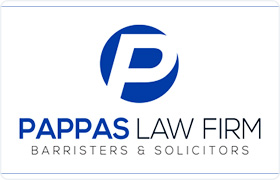Etobicoke Divorce & Family Law Lawyer, Ontario, page 4
Sponsored Law Firm
-
 x
x

Click For More Info:
-
Pappas Law Firm
3100 Steeles Ave W Suite 602 Vaughan, ON L4K 3R1» view mapDivorce & Family Pay No Legal Fees Until You Get Paid
Pappas Law Firm specializes in civil litigation and concentrates on serious personal injury claims.
800-953-0441
Not enough matches for Etobicoke Divorce & Family Law lawyer.
Below are all Etobicoke lawyers.
Joanne Patricia Blacklock
Accident & Injury, Car Accident, Disability, Products Liability
Status: In Good Standing
Julie Pamela Kim Populus
Immigration, Personal Injury, Labor Law, Litigation
Status: In Good Standing
Basilio Eugenio Zyla
Residential Real Estate, Estate Planning, Wills, Power of Attorney
Status: In Good Standing
Victor Leonard Lishchyna
Employment, Divorce & Family Law, Civil & Human Rights, Business
Status: In Good Standing
 George Pappas Vaughan, ON
George Pappas Vaughan, ON AboutPappas Law Firm
AboutPappas Law Firm Practice AreasExpertise
Practice AreasExpertise
